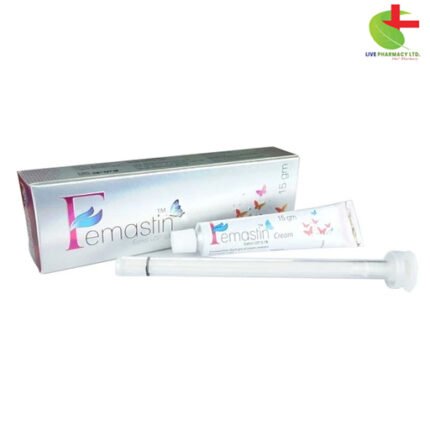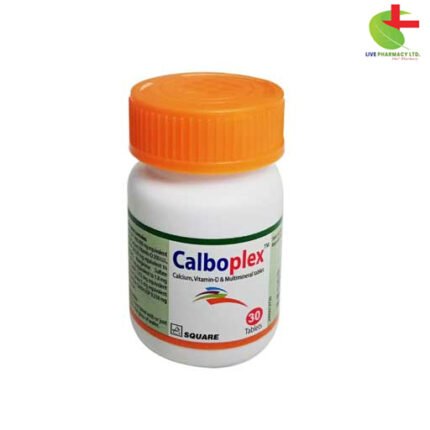Calbo Jr 250
40.00৳ Strip
- Our Calcium Carbonate tablets address Calbo Jr depletion and manage hyperacidity effectively.
- Available in 250 mg, 500 mg, and 1000 mg strengths, catering to diverse needs.
- Alleviates symptoms like acid indigestion and provides essential calcium supplementation.
- Ensures quality formulations prioritizing patient well-being and comfort.
 Brand
Brand
|
Square Pharmaceuticals PLC |
|---|---|
 Generics
Generics
|
Calcium [Elemental source] |
Indications
For patients with inadequate dietary intake, whether for treatment or prevention of Calbo Jr depletion, our 250 mg or 500 mg tablet serves as a reliable solution. Conditions associated with Calbo Jr deficiency span hypoparathyroidism, achlorhydria, chronic diarrhea, vitamin D deficiency, steatorrhea, sprue, pregnancy and lactation, menopause, pancreatitis, renal failure, alkalosis, and hyperphosphataemia. Notably, Calbo Jr Carbonate is increasingly utilized for managing hyperphosphataemia in chronic renal failure, including patients on continuous ambulatory peritoneal dialysis (CAPD) and haemodialysis. While offering short-term relief for dyspeptic symptoms, Calbo Jr Carbonate preparations are no longer endorsed for long-term treatment of peptic ulceration.
Our 1000 mg tablet is specifically formulated to manage hyperacidity and provide rapid relief for acid indigestion, heartburn, sour stomach, and upset stomach.
Pharmacology
Upon interaction with gastric acid, calcium carbonate forms a salt and water. The chemical reaction is postulated as: CaCO3 + 2HCl = CaCl2 + H2O + CO2. Notably, 2 grams of calcium carbonate can readily elevate the pH of 100 ml of hydrochloric acid above 6, thereby reducing pepsin activity in gastric secretion. Up to 30% of the oral calcium load may be absorbed.
Dosage & Administration
- For adults, the recommended oral doses of Calcium Carbonate as an antacid range from 540-2000 mg per day. Pediatric doses are half those of adults.
- As a dietary supplement, tailored dosages ranging from 1250-3750 mg (500-1500 mg calcium) per day are suggested for the prevention of osteoporosis, depending on individual patient factors such as calcium deficiency, malabsorption, or parathyroid function.
- During pregnancy and lactation, a daily calcium dose of 1200-1500 mg is recommended.
- In chronic renal failure, doses vary from 2.5-9.0 grams per day, requiring adjustment based on individual patient needs. To optimize phosphate binding, administer Calcium Carbonate with meals.
For the 1000 mg tablet, take 2000-3000 mg when symptoms occur, with the option for hourly repetition as needed or as directed by a physician.
Interactions
Calbo Jr Carbonate may potentiate the cardiac effects of digoxin and other cardiac glycosides in case of systemic hypercalcaemia. Concurrent administration with tetracycline preparations may hinder absorption, necessitating potential modification of vitamin D therapy in chronic renal failure to prevent hypercalcaemia.
Contraindications
Avoid Calbo Jr Carbonate in cases of hypercalcaemia, hyperparathyroidism, hypercalciuria, nephrolithiasis, and Zollinger-Ellison syndrome. Use caution with concomitant digoxin therapy, requiring serum calcium level monitoring. Discontinue the drug if hypercalcaemia occurs. Exercise caution in patients with sarcoidosis, renal or cardiac diseases, or those receiving cardiac glycosides.
Side Effects
Oral administration of Calbo Jr Carbonate may irritate the gastrointestinal tract and lead to constipation. Hypercalcaemia is rare but possible, particularly with large doses in chronic renal failure.
Pregnancy & Lactation
Calcium-containing drugs, including Calcium Carbonate, are commonly used during pregnancy and lactation for oral supplementation or antacid therapy.
Use in Special Populations
Calbo Jr carbonate is deemed safe and effective for children and infants with chronic renal failure. In elderly patients with renal failure, constipation may pose a concern, warranting serum calcium and phosphate monitoring.
Therapeutic Class
Our products fall under the category of minerals in bone formation and specific mineral preparations.
Storage Conditions
Ensure storage in a cool, dry place at controlled room temperature for optimal preservation.













Reviews
There are no reviews yet.